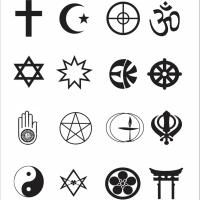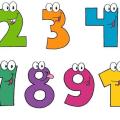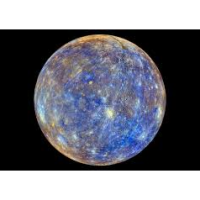
1 member
Sports
test here for info test here for infotest here for infotest here for infotest here for infotest here for infotest here for infotest here for infotest here for infotest here for infotest here for infotest here for infotest here for info

1 member
Animals
Politics (from Greek: Πολιτικά, politiká, 'affairs of the cities') is the set of activities that are associated with making decisions in groups, or other forms of power relations among individuals, such as the distribution of resources or status. The branch of social science that studies politics and government is referred to as political science.
It may be used positively in the context of a "political solution" which is compromising and nonviolent,[1] or descriptively as "the art or science of government", but also often carries a negative connotation.[2] The concept has been defined in various ways, and different approaches have fundamentally differing views on whether it should be used extensively or limitedly, empirically or normatively, and on whether conflict or co-operation is more essential to it.
Politics (from Greek: Πολιτικά, politiká, 'affairs of the cities') is the set of activities that are associated with making decisions in groups, or other forms of power relations among individuals, such as the distribution of resources or status. The branch of social science that studies politics and government is referred to as political science.
It may be used positively in the context of a "political solution" which is compromising and nonviolent,[1] or descriptively as "the art or science of government", but also often carries a negative connotation.[2] The concept has been defined in various ways, and different approaches have fundamentally differing views on whether it should be used extensively or limitedly, empirically or normatively, and on whether conflict or co-operation is more essential to it.
Politics (from Greek: Πολιτικά, politiká, 'affairs of the cities') is the set of activities that are associated with making decisions in groups, or other forms of power relations among individuals, such as the distribution of resources or status. The branch of social science that studies politics and government is referred to as political science.
It may be used positively in the context of a "political solution" which is compromising and nonviolent,[1] or descriptively as "the art or science of government", but also often carries a negative connotation.[2] The concept has been defined in various ways, and different approaches have fundamentally differing views on whether it should be used extensively or limitedly, empirically or normatively, and on whether conflict or co-operation is more essential to it.

1 member
Military
Politics (from Greek: Πολιτικά, politiká, 'affairs of the cities') is the set of activities that are associated with making decisions in groups, or other forms of power relations among individuals, such as the distribution of resources or status. The branch of social science that studies politics and government is referred to as political science.
It may be used positively in the context of a "political solution" which is compromising and nonviolent,[1] or descriptively as "the art or science of government", but also often carries a negative connotation.[2] The concept has been defined in various ways, and different approaches have fundamentally differing views on whether it should be used extensively or limitedly, empirically or normatively, and on whether conflict or co-operation is more essential to it.
Politics (from Greek: Πολιτικά, politiká, 'affairs of the cities') is the set of activities that are associated with making decisions in groups, or other forms of power relations among individuals, such as the distribution of resources or status. The branch of social science that studies politics and government is referred to as political science.
It may be used positively in the context of a "political solution" which is compromising and nonviolent,[1] or descriptively as "the art or science of government", but also often carries a negative connotation.[2] The concept has been defined in various ways, and different approaches have fundamentally differing views on whether it should be used extensively or limitedly, empirically or normatively, and on whether conflict or co-operation is more essential to it.
Politics (from Greek: Πολιτικά, politiká, 'affairs of the cities') is the set of activities that are associated with making decisions in groups, or other forms of power relations among individuals, such as the distribution of resources or status. The branch of social science that studies politics and government is referred to as political science.
It may be used positively in the context of a "political solution" which is compromising and nonviolent,[1] or descriptively as "the art or science of government", but also often carries a negative connotation.[2] The concept has been defined in various ways, and different approaches have fundamentally differing views on whether it should be used extensively or limitedly, empirically or normatively, and on whether conflict or co-operation is more essential to it.
Re
1 member
Religion
Religion is usually defined as a social-cultural system of designated behaviors and practices, morals, beliefs, worldviews, texts, sanctified places, prophecies, ethics, or organizations, that generally relates humanity to supernatural, transcendental, and spiritual elements;[1] however, there is no scholarly consensus over what precisely constitutes a religion.[2][3] Different religions may or may not contain various elements ranging from the divine,[4] sacred things,[5] faith,[6] a supernatural being or supernatural beings[7] or "some sort of ultimacy and transcendence that will provide norms and power for the rest of life".
Religion is usually defined as a social-cultural system of designated behaviors and practices, morals, beliefs, worldviews, texts, sanctified places, prophecies, ethics, or organizations, that generally relates humanity to supernatural, transcendental, and spiritual elements;[1] however, there is no scholarly consensus over what precisely constitutes a religion.[2][3] Different religions may or may not contain various elements ranging from the divine,[4] sacred things,[5] faith,[6] a supernatural being or supernatural beings[7] or "some sort of ultimacy and transcendence that will provide norms and power for the rest of life".
Religion is usually defined as a social-cultural system of designated behaviors and practices, morals, beliefs, worldviews, texts, sanctified places, prophecies, ethics, or organizations, that generally relates humanity to supernatural, transcendental, and spiritual elements;[1] however, there is no scholarly consensus over what precisely constitutes a religion.[2][3] Different religions may or may not contain various elements ranging from the divine,[4] sacred things,[5] faith,[6] a supernatural being or supernatural beings[7] or "some sort of ultimacy and transcendence that will provide norms and power for the rest of life".








